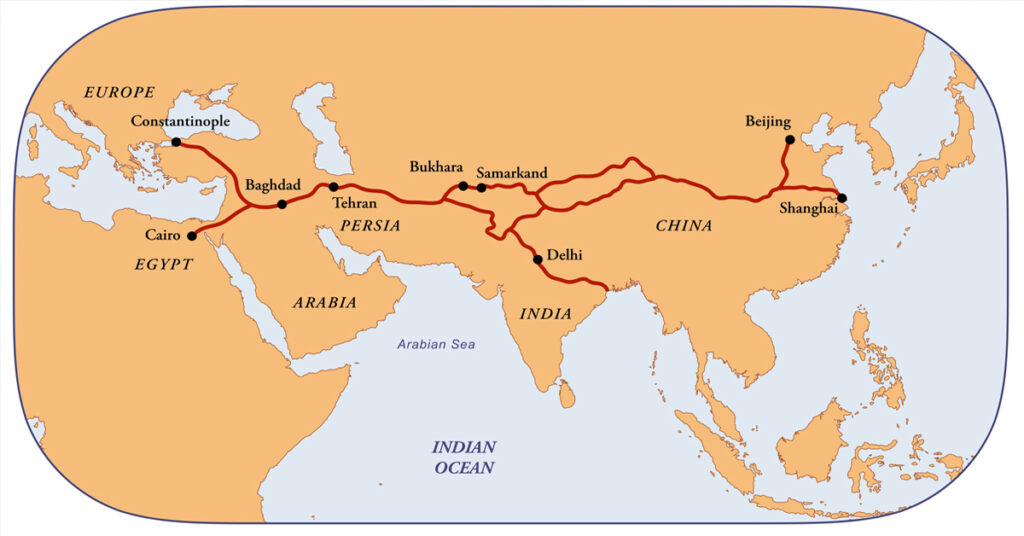What Is the Debate on Globalization?
Thank you for being part of our ATMA INSIGHTS global community.
Every day, we hear people talk about how the world is shrinking. Advancements in transportation and communications are bringing people from all over the world in closer contact with each other, making them more aware of what is available and what they might sell to people abroad. They may argue about borders, religions, and politics. But take a look around and you’ll see many people are demanding goods and services from the same countries that they may have felt so uncomfortable coming into close contact with.
In today’s global economy, everyone is accustomed to buying goods from other countries— electronics from Taiwan, vegetables from Mexico, clothing from China, cars from Korea, and skirts from India. They’re sipping Cokes, paying for meals with Visa cards or Google Pay, driving Toyotas and Mercedes, and wearing shoes made in Italy, Vietnam, or Brazil. Most modern shoppers take the “Made in [a foreign country]” stickers on their products for granted.
Long-distance commerce wasn’t always this common, although foreign trade—the movement of goods from one geographic region to another—has been a key factor in human affairs since prehistoric times. Thousands of years ago, merchants transported only the most precious items—silk, gold, precious metals, jewels, spices, porcelains, and medicines—via ancient extended land and sea trade routes, including the famed Silk Road through central Asia. Moving goods great distances was simply too hard and costly to waste the effort on ordinary products, although people often carted grain and other foods over shorter distances from farms to market towns.
 What is the Silk Road?
What is the Silk Road?
It’s a network of trade routes that connected the East and West, was central to the economic, cultural, political, and religious interactions between these regions from the second century BCE to the eighteenth century. The Silk Road primarily refers to the land routes connecting East Asia and Southeast Asia with South Asia, Persia, the Arabian Peninsula, East Africa, and Southern Europe. The Silk Road derives its name from the lucrative trade in silk carried out along its length.
While global trade has existed for centuries, what’s relatively new is the speed at which global trade is growing, impacting people within each country as well as the world overall. Global trade has been growing rapidly in recent decades because of technological expansion, liberalization of governmental policies on international trade and resource movements, development of institutions needed to support and facilitate international transactions, and increased global competition.
Because of all these factors, companies increasingly use foreign countries as a source of both production and sales. Accordingly, globalization has become inevitable. All countries permit some level of foreign trade, although some permit more than others. Most governments have conclusively decided that global trade and investment can benefit their countries and their people. Private companies have also realized that the best opportunities for growth and profits often come from outside their home countries.
Despite the pervasive influence of globalization, it is hard to pin down one definition that will suit everybody. For our purposes, globalization refers to an interdependent world economy in which people in one part of the world interact with people in another part as buyers, sellers, or intermediaries. Much of this interdependency came under greater scrutiny in 2020 as COVID-19 ravaged countries and the global economy. These disruptions were further compounded in 2022 with the devastating Russian invasion of Ukraine and the subsequent realignment of geopolitical issues further taking a toll on the operations of global businesses.
The long-lasting impact of the COVID-19 pandemic and the realignment of geopolitical issues is unclear, but it’s not likely to end globalization. Rather, the second age of globalization that began in 1945 will now morph into something new. World War I brought about the end of the first globalization from 1870 to 1914. Now, the post-COVID-19 environment is triggering a new wave of creative destruction. The crisis will unleash a third wave of improved globalization, which will eventually offer immense opportunities for innovation and dynamic improvements in productivity and technological and organizational innovation as well as a rethinking of traditional supply-chain strategies.
What is the globalization debate? Well, it’s not so much a debate as it is a stark difference of opinion on how the internationalization of businesses is affecting countries’ cultural, consumer, worker, and national identities—and whether these changes are desirable. For instance, the ubiquity of such food purveyors as Coca-Cola and McDonald’s in practically every country reflects the fact that some consumer tastes are converging, though at the likely expense of local beverages and foods.
In reality, globalization has created both opportunities and challenges. Recently, globalization has come under greater scrutiny from its detractors as nationalist and populist movements around the world have questioned the impact of globalization on local economies. Economists are assessing the impact of global trade, and governments and businesses are exploring new solutions to address some of the challenges of globalization while preserving and promoting some of the opportunities. Global professionals need to be aware of the broader social, economic, and political concerns that may impact the business of their firms.
Globalization isn’t in retreat, but it has morphed into a very different phenomenon, increasingly powered by trade in services and by intraregional trade. Underlying it all is the impact of automation on low-skill jobs—which will ultimately increase the need for innovation in operations, manufacturing, and supply chains.



